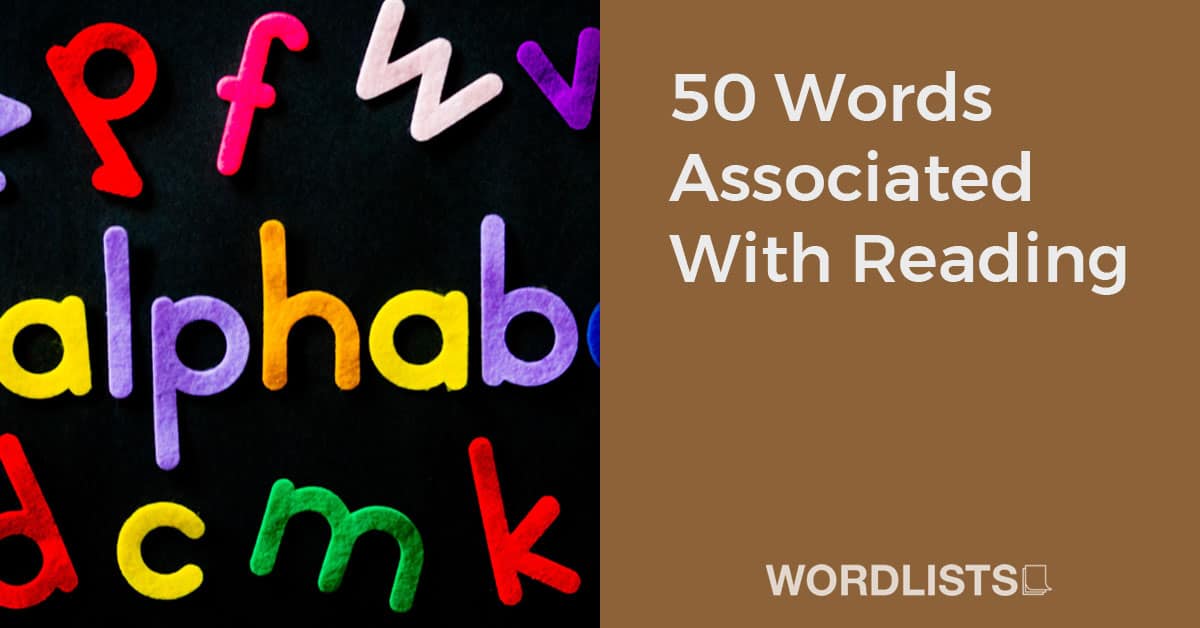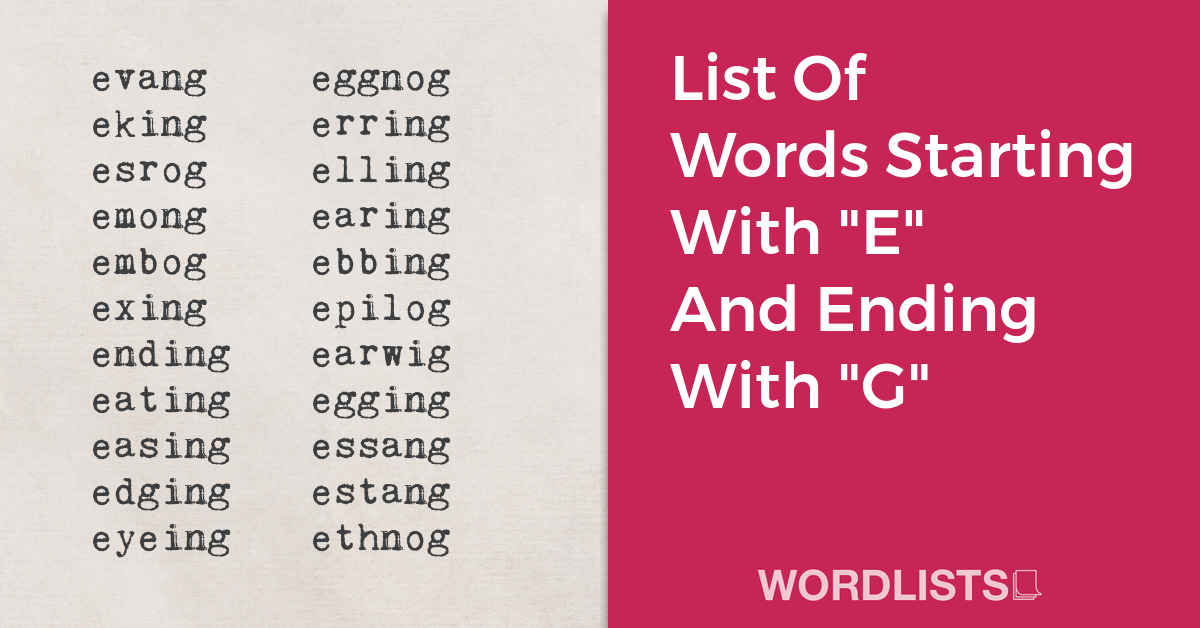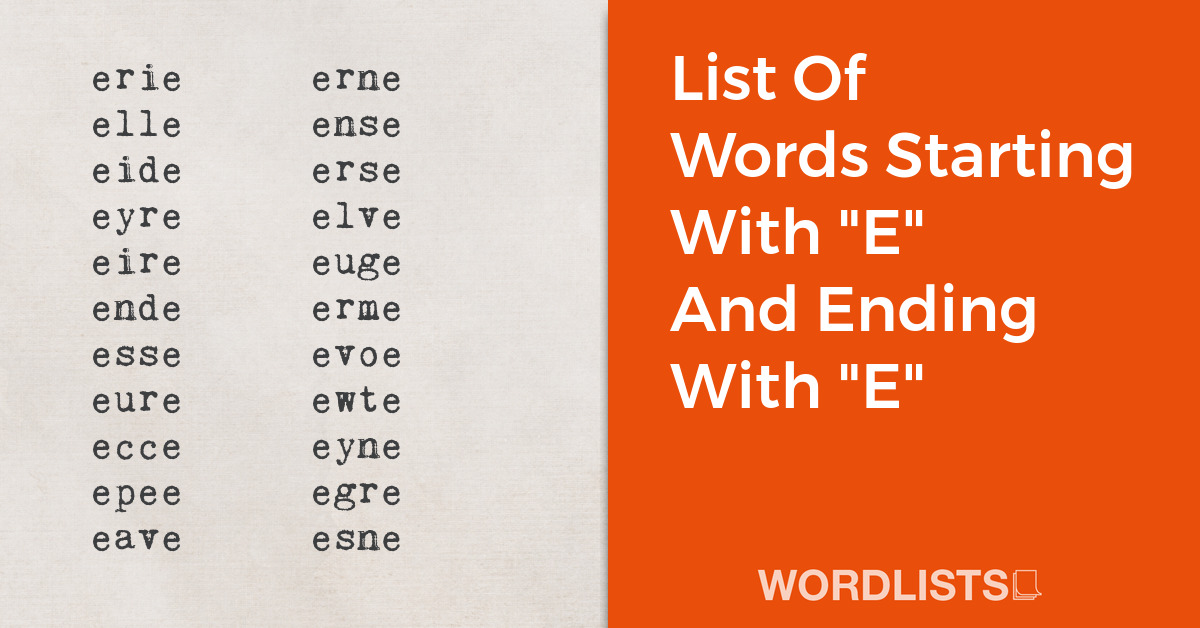Reading is a beloved pastime and an essential skill, and as a result, it has its unique vocabulary. From the types of books and the words and phrases used to describe them, to the techniques and strategies used to improve reading skills, there are countless words and terms associated with the world of reading.
In this list, we’ll take a look at 50 words that are commonly associated with reading, ranging from basic terms to more advanced concepts. Whether you’re a book lover or just want to learn more about this vital skill, you’re sure to find something interesting in this list!

Subscribe to our mailing list to receive FREE exclusive content and offers!
50 Words Associated With Reading Meanings
Literature: Written works considered to have artistic or intellectual value, typically including novels, plays, and poetry.
Book: A collection of printed pages bound together, typically containing a work of fiction or nonfiction.
Novel: A long narrative, typically in prose, which describes fictional characters and events.
Story: An account of imaginary or real people and events told for entertainment, often in the form of a narrative.
Poem: A work of literature that uses rhythmical composition, often using rhyming schemes, to express experiences, ideas, or emotions.
Essay: A short piece of writing on a particular subject, typically presenting the author’s personal viewpoint.
Article: A piece of writing included with others in a newspaper, magazine, or other publication.
Journal: A publication issued regularly containing articles about a particular academic discipline.
Magazine: A periodical publication containing articles, stories, pictures, and other features, often centered around a specific topic or theme.
Newspaper: A printed publication (usually issued daily or weekly) containing news, articles, features, and advertisements.
Comic book: A publication that uses sequential art to tell a story or series of stories, often featuring superheroes or other fantastical elements.
Graphic novel: A full-length story published as a book in comic-strip format.
Ebook: A book in digital format that can be read on a computer or other digital devices.
Audiobook: A recorded version of a book or other work being read aloud.
Library: A place where books, magazines, and other materials (such as CDs and DVDs) are available for people to use or borrow.
Author: The person who writes a work of literature.
Publisher: A person, business or institution that prepares and issues books, journals, music, or other works for sale.
Illustrator: An artist who makes illustrations (drawings or pictures) for books, magazines, or other print or digital media.
Editor: A person who corrects or adapts a writer’s manuscript for publication.
Proofreader: A person who checks a text for errors, including grammar, punctuation, spelling, and formatting.
Manuscript: An author’s original text of a book, article, or other work before it is published.
Typescript: A typed copy of a piece of literature, such as a book or play, before it has been printed.
Copyright: The legal right of an author, artist, or publisher to exclusively publish, print, sell, or distribute a literary, musical, or artistic work.
Plagiarism: The practice of taking someone else’s work or ideas and passing them off as one’s own.
Citation: A reference to a book, paper, or author in scholarly work, usually as a way to credit original ideas and provide a path for readers to find the original source.
Index: An alphabetical listing of names, subjects, etc., with reference to the pages on which they are mentioned, typically found at the end of a book.
Glossary: A list of terms in a particular domain of knowledge with the definitions for those terms, usually placed at the end of a book.
Appendix: Additional material at the end of a book, such as tables of data, extra information, etc.
Preface: An introduction to a book written by the book’s author that often explains how the book came into being and is typically signed.
Introduction: A preliminary part of a book that leads up to and explains the main part.
Foreword: A short introductory statement in a published work, typically by a person other than the author.
Prologue: An opening to a story that establishes the setting and gives background details.
Epilogue: A section or speech at the end of a book or play that serves as a comment on or a conclusion to what has happened.
Summary: A brief statement or account of the main points of a story or text.
Analysis: Detailed examination of the elements or structure of a text, typically as a basis for discussion or interpretation.
Review: A critical evaluation of a text, such as a book, film, musical composition, etc.
Comprehension: The ability to understand and interpret what is being read.
Interpretation: The action of explaining the meaning of something, in this context, a piece of literature.
Vocabulary: The set of words that a person knows or uses, especially in a particular profession or subject.
Grammar: The set of structural rules governing the composition of clauses, phrases, and words in any given natural language.
Spelling: The process or activity of writing or naming the letters of a word.
Punctuation: The marks, such as period, comma, and parentheses, used in writing to separate sentences and their elements and to clarify meaning.
Syntax: The arrangement of words and phrases to create well-formed sentences in a language.
Literary devices: Techniques used by writers to create a special effect or feeling in their writing, such as metaphor, irony, or simile.
Plot: The sequence of events inside a story which affect other events through the principle of cause and effect.
Character: A person, animal, or imaginary creature in a book, play, film, or other narrative work.
Setting: The place or type of surroundings where something is positioned or where an event takes place in a story.
Theme: The underlying message, or ‘big idea’ that is conveyed in a piece of literature.
Genre: A category of literary composition characterized by a particular style, form, or content (such as sci-fi, mystery, romance).
Style: The way a writer writes, and the technique which an individual author uses in his writing. It varies from author to author, and depends upon one’s syntax, word choice, and tone.







